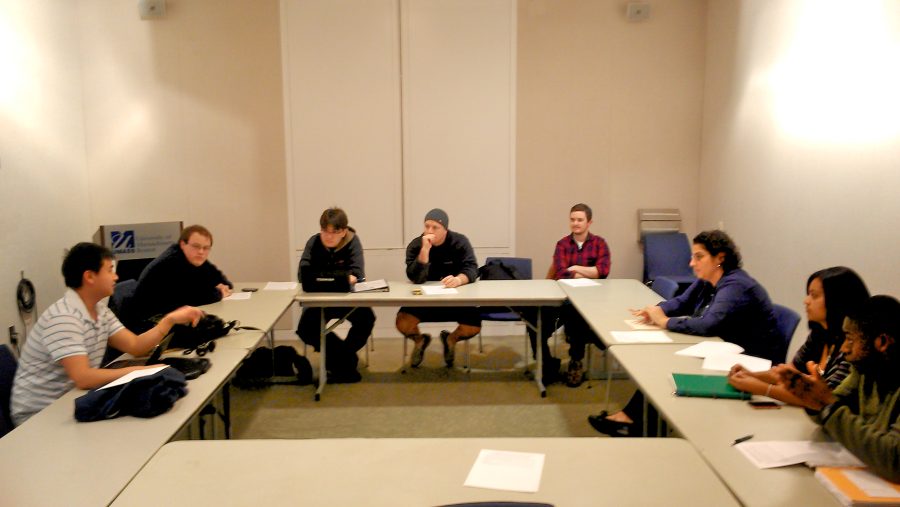The Undergraduate Student Government (USG) had $248,000 in unspent funds at the end of last semester. The question of how to appropriately spend the excess funds fell on the Budget and Finance committee, a sector of the USG senate. Chairman of the Budget and Finance Committee Jesse Wright met with Campus Center Director Geoff Combs and Charles Henriques, assistant director of the Office of Student Activities and Leadership and advisor to the Student Arts and Events Council, to determine how to best use the surplus dollars. The resulting plan was dubbed the Carry Forward Act of 20011-12
The fund for the budget is raised primarily from the non-waivable student activities fee of $9 per student.
“We don’t want to just keep rolling over cash year to year,” said Wright. “We want to spend the funds we collect from student fees in ways that enrich community life.” To that effect, three 42-inch flat screen televisions, an Xbox, a PlayStation and a Nintendo Wii have been purchased for the game room; three new microwaves were also purchased for the cafeteria. Ten new Dell laptops were bought as well; students will be able to borrow these laptops for a prescribed amount of time from Campus Center on the upper level.
In addition to those expenditures the USG also purchased four 65-inch flat screen televisions that will be installed in communal office spaces in the Campus Center. They also allocated funds for the eventual purchase and installation of three touch screen directories in the Campus Center. Combs counseled Wright on these purchases, which totaled $85,800
“I asked him to give me his dream list,” said Wright. “If I could give you $100,000 what would you do with it? This [the appliances purchased] is what he came up with. I took his list back to the committee members and we agreed that these purchases would immediately enhance community life as far as making it more enjoyable by giving students more to do, and creating shorter lines at the microwave.”
In addition to the actual cost of the appliances, the Budget and Finance committee had to reserve funds to pay the 9% administration fee on the items. If any group or organization wants to purchase an item (a TV for example) through the University, it has to pay 9% of the cost of the item to the University. The total administrative fee for all the appliances was $20,000.
Wright approached Henriques, in the same way he had approached Combs. Henriques and his fellow coordinators generated a dream list of their own, which included the following: additional AMC movie tickets, additional passes to the Aquarium, additional tickets for the Broadway in Boston Series, additional Celtics/Bruins tickets, more funding for the ski trips, a new co-coordinator position, a new Apple computer, funding for the “Movie Under the Stars Event” and funding for an upcoming event called the College Spirit Cup.
Interestingly, selling of movie passes and tickets to the Aquarium, the Broadway in Boston Series and Celtics and Bruins games generates enough money to pay for the new co-coordinator position, the new Apple, the “Movie Under the Stars Event”, and the College Spirit Cup. The total cost of Henriques’s dream list was $31,000.
The new co-coordinator will provide student organizations with assistance designing the posters and flyers they use to promote their events. The USG normally funds the cost of printing those flyers and posters, which are created in the Quinn printing facility, but students were on their own when it came to design. This will no longer be the case, as the new co-coordinator will be available Monday through Thursday for up to two hours each day to meet with students and work out what it is they want and how to accomplish it.
Several clubs had overdue balances at the end of last year, so $6,781 of the surplus was spent on paying off those old debts. “We have put in steps this year that eliminate the ability for clubs to go into the negative,” Wright said. “We are also going to re-address the budget so as to permanently include the purchase of Museum of Fine Arts passes so that students will always be able to visit it free of charge.”
Before any of these purchase could be made or plans enacted, the Budget and Finance Committee proposal had to be approved by the USG senate at large, and then receive final approval from Patrick Day. The proposal passed unanimously through the senate and received approval from Day’s office.
Wright and his fellow committee members wanted to use $25,000 from the surplus to create a leadership scholarship and they were very close to doing so until endowment operators disclosed that student activity revenue could not be used to fund scholarships. However, Chancellor Motley (who was present at the senate meeting when the Carry Forward Act was passed) was impressed by the plan and there is ongoing discussion about possibility of funding the scholarship.






















































